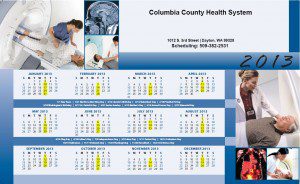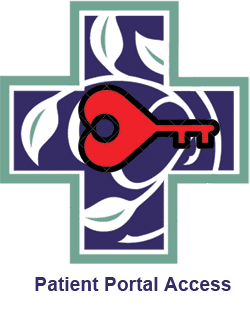Uncategorized
We wanted to remind you that you do have the choice to get your MRI performed locally. Every Thursday, Alliance Imaging brings a MRI coach to Dayton with a state of the art, General Electric, 1.5 Tesla MRI, an industry standard for most MRI studies. MRI’s are performed by appointment only and your provider or specialist will call us to get you on the schedule. The diagnostic images are then read by St. Mary’s radiologists, in Walla Walla with the results forwarded along to your doctor.

NCADD provides a wealth of information and tools to people looking for information or help with alcohol dependence. Alcohol dependance is more than just a personal health issue; 36% of those under correctional supervision were drinking at the time of their conviction offense, and 40% of convicted murderers said that alcohol played a factor in the homicide. Learn more about how alcohol affects our communities here: NCADD.ORG

Drinking too much alcohol increases the risk of health-related problems like injuries, violence, liver disease, and some types of cancer. This April during Alcohol Awareness Month, Columbia County Health System encourages you to take this time to educate yourself and your loved ones about the dangers of drinking too much.
In 2010, 37% of all traffic related fatalities, in Washington State, involved an alcohol impaired driver. There 19,783 3-time DUI offenders in Washington State and Washington Ranks 8th in the Nation for DUI related fatalities. To spread the word and prevent alcohol abuse, Columbia County Health System is joining other organizations across the country to honor Alcohol Awareness Month and prevent alcohol abuse in our community.
If you are drinking too much, you can improve your health by cutting back or quitting. Here are some strategies to help you cut back or stop drinking:
- Limit your drinking to no more than 1 drink a day for women and no more than 2 drinks a day for men.
- Keep track of how much you drink.
- Don’t drink when you are upset.
- Avoid places where people drink too much.
- Make a list of reasons not to drink.
[Source: DLG Law Firm | Personal Injury]
The National Cancer Institute developed a “Risk Assessment Tool” to help people understand their risks, as well as, provide information to assist in having an informed conversation with your healthcare provider.
The Colorectal Cancer Risk Assessment Tool was designed for use by doctors and other health providers with their patients. If you are not a health provider, take these results to your doctor or other health provider to discuss your personal risk of colorectal cancer. (Colorectal cancer is another way to say colon and rectal cancer).
This tool does not yet apply to American Indians and Alaska Natives, but the National Cancer Institute is working to improve the tool for use by these groups of people.
If you are African American, Asian American/Pacific Islander, or Hispanic/Latino, please click here for more information about race, ethnicity, and how the tool was developed.
[maxbutton id=”1″]
According to the Centers for Disease Control and Prevention (CDC) website, colorectal cancer is cancer that occurs in the colon or rectum. Sometimes it is called colon cancer, for short. The colon is the large intestine or large bowel. Colorectal cancer affects men and women of all racial and ethnic groups, and is most often found in people aged 50 years or older. In the United States, it is the third most common cancer for men and women. Of cancers that affect both men and women, colorectal cancer is the second leading cancer killer in the United States, but it doesn’t have to be. If everybody aged 50 or older had regular screening tests, as many as 60% of deaths from colorectal cancer could be prevented.
For more information and resources regarding colorectal cancer screening, speaking to a loved one about your concerns regarding getting regularly screened, and questions to ask your doctor, please visit the Healthfinder.gov website.

We’ve completed the new Annex dining room where residents can enjoy a more private, but still sociable dining experience. Both dietary staff as well as residents are excited about the new space:
[easyrotator]erc_73_1362011002[/easyrotator]
You can take steps today to lower your risk of heart disease and heart attack. Heart disease is the leading cause of death for both men and women in the United States.
To help prevent heart disease, you can:
- Eat healthy and get active.
- Watch your weight.
- Quit smoking and stay away from secondhand smoke.
- Control your cholesterol (“koh-LEHS-tuh-rahl”) and blood pressure.
- If you drink alcohol, drink only in moderation.
- Take steps to prevent type 2 diabetes.
- Manage stress.
Find out more here: Healthfinder.gov
We have been working hard to expand our Pharmacy to include a new IV preparation hood. The new hood will greatly reduce the possibility of contamination and could allow us to offer additional services like Total Parenteral Nutrition, or TPN. TPN is often ordered for patients that cannot, or should not, get their nutrition through eating. This is just another way Columbia County Health System is elevating the quality of care we give our community.

I recently had the opportunity to provide some information for NoaNet’s ENewsletter that they produce. I’m sure that the format will require that they edit the content of my responses greatly, I thought I would share the full response here. A little background: NoaNet was selected to build out a fiber optic network into rural communities throughout Washington State, including Dayton. By extending their already expansive network, they will be able to provide critical telecommunications services to communities like ours that have traditionally lagged behind many of the larger cities surrounding us.
Hi Shane,
Thanks again for your time. As I mentioned the goal is to include a short section (a paragraph or two) on how high-speed broadband access benefits local hospitals like Dayton General in the next NoaNet Enewsletter. If you’re interested, you can see previous Enewsletters here: NoaNet ENewsletters.
Here are the interview questions we were hoping to ask you. Any information is helpful.
Is Dayton General Hospital currently connected to NoaNet broadband fiber service? If not, when do you believe it will be connected?
We are not currently connected, the fiber has been delivered to the buildings and we believe that services will be up first quarter of 2013.
How will high-speed broadband Internet benefit the Dayton General Hospital?
Both the Federal and State governments have established policies and incentive programs to encourage healthcare organizations to invest and adopt systems that will support Electronic Healthcare Records. These Meaningful Use initiatives require, among other things, electronic communication to update Immunization Databases, transfer syndromic surveillance data to Public Health, and the secure, electronic transmission of key clinical information among providers of care and other patient authorized entities. In addition to these government incentive programs, we’ve also established interfaces to our reference lab, radiology service provider, and Inland Northwest Health Services (INHS) for telehealth opportunities. All of these services are in addition to the direct connections we maintain to our Rural Health Clinic in Waitsburg and our local pharmacy. We’ve struggled to maintain communications integrity and performance, under the demand of all these competing needs, while utilizing older telecommunications technologies that are both expensive and highly restrictive. NoaNet’s broadband services will allow us to better fulfill the requirements of a modern day Electronic Medical Records System in an ever increasingly interconnected industry.
How will this service enable patients to receive better, faster or more efficient care? Can you give any specific examples?
One of the largest hurdles that rural healthcare facilities faced, with the delivery of healthcare in a modern age, was the electronic and telecommunications infrastructure, enjoyed for years, by facilities located in metropolitan areas. Healthcare facilities in Spokane have had access to fiber optic based telecommunications mediums since the late 90’s. High speed interconnection and the subsequent ability to quickly share diagnostic information with specialists truly elevates the quality of care and the responsiveness of that care. At the same time that images from Spokane Hospitals were being electronically transmitted to radiologists, in Dayton, Washington, diagnostic images were placed on a public transportation bus and driven to radiologists in Walla Walla so that they could be read. Thankfully that solution evolved to one where images are transmitted over a T1 line to the Radiologist electronically, but larger studies often take quite a bit of time to send before they can finally be read. It can be said that broadband services delivered over NoaNet’s infrastructure is the next evolution of this example and that it finally closes the gap between solutions available to healthcare facilities in larger metropolitan areas and the facilities in the more rural areas of the State. If NoaNet hadn’t built it, who would have and how many more years would the rural areas have struggled with outdated telecommunications technology?
Any other information you’d like to share on the Columbia County Hospital District or Dayton General Hospital?
In the coming years we expect to see many changes in the healthcare industry as we all work to accommodate a greater number of patients. I would say that Columbia County Health System is a model for the future of Healthcare. While the Federal and State Governments work to make their “Healthcare for All” initiatives become reality, healthcare facilities are looking for ways to accommodate a greater influx of patients in an age of increasingly shrinking margins. Hospital Districts and Critical Access Hospitals have been serving our underserved communities for years and have learned to operate on razor thin margins. We often find ourselves working hard to do more with less without compromising patient outcomes. We are compassionate, have great practitioners and caregivers, and we are increasingly becoming more technologically advanced after a long period of time when it wasn’t financially viable nor available. There may have been a time when the quality of care in a rural setting was not on par with that found in larger hospitals, but today we have to meet the same quality indicators, we rely on the same specialists practicing in the larger institutions, we have electronic medical records systems, transmit diagnostic images to radiologists in Walla Walla and Spokane, interface electronically with large reference laboratories, and will soon be able to do this even more effectively with increased communications capacity. By all measures, we are reducing the once large disparity between the quality of healthcare received in a large institution to that which is delivered in a smaller environment. There will always be a need for specialists and specialized care, but a large percentage of routine care can be delivered efficiently, and cost effectively without sacrificing quality, in our rural healthcare systems as we have gained access and adopted tools and resources not previously available.
Last week we officially began using the new, remodeled space. Medical staff is discovering how to be more efficient every day and feel that our patients have a much more personal experience in the private exam rooms. We could not have done this without the efforts of our valued staff, community support, and some great tradesmen.
[easyrotator]erc_0_1377892286[/easyrotator]




